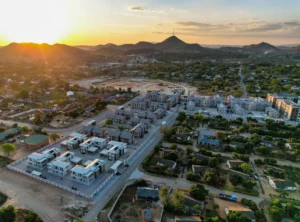Zimbabwe’s infrastructure sector is poised for significant transformation, driven by the rapid advancement of electrical engineering. As the country strives to meet the growing energy demands of its population and industries, electrical engineers are at the forefront of developing innovative solutions.
Renewable energy sources, such as solar, wind, and hydro power, are gaining prominence as sustainable alternatives to traditional fossil fuel-based generation. Electrical engineers are instrumental in designing, installing, and maintaining renewable energy systems, optimizing their performance and minimizing environmental impact.
Smart grid technology is revolutionizing the way electricity is generated, transmitted, and distributed. The integration of advanced digital technologies, enables smart grids to work efficiently in energy management, real-time monitoring, and improved grid reliability. Electrical engineers play a crucial role in developing and implementing smart grid solutions, optimizing energy usage, and reducing power outages.
Automation and control systems are increasingly being adopted in various infrastructure sectors, including power generation, transmission, and distribution. Electrical engineers are responsible for designing, implementing, and maintaining these systems, enhancing operational efficiency, reducing human error, and improving overall system performance.
The Internet of Things (IoT) is emerging as a powerful tool for connecting devices and systems, enabling data-driven decision-making and remote monitoring. Electrical engineers are leveraging IoT technologies to create intelligent infrastructure systems that can adapt to changing conditions and optimize resource utilization.
To fully realize the potential of these emerging technologies, Zimbabwe needs a skilled workforce of electrical engineers. Investing in education and training programs is essential to develop a pipeline of talented engineers who can drive innovation and sustainable development. The fostering of a culture of innovation and collaboration can position Zimbabwe as a leader in the field of electrical engineering.
The future of electrical engineering in Zimbabwe’s infrastructure sector is bright. Embracing emerging technologies and nurturing a skilled workforce, the country can build a more sustainable, resilient, and prosperous future. Electrical engineers will play a pivotal role in shaping this future, driving economic growth, and improving the quality of life for all Zimbabweans.
From S&D ISSUE 71










